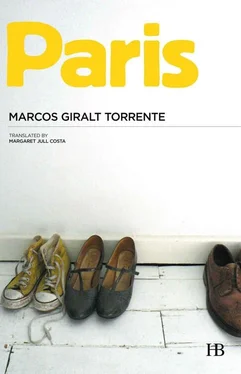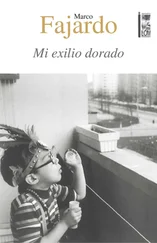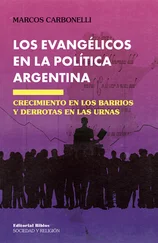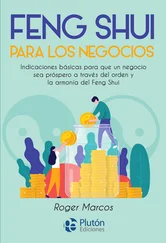Marcos Giralt Torrente - Paris
Здесь есть возможность читать онлайн «Marcos Giralt Torrente - Paris» весь текст электронной книги совершенно бесплатно (целиком полную версию без сокращений). В некоторых случаях можно слушать аудио, скачать через торрент в формате fb2 и присутствует краткое содержание. Год выпуска: 2014, ISBN: 2014, Издательство: Hispabooks, Жанр: Современная проза, на английском языке. Описание произведения, (предисловие) а так же отзывы посетителей доступны на портале библиотеки ЛибКат.
- Название:Paris
- Автор:
- Издательство:Hispabooks
- Жанр:
- Год:2014
- ISBN:9788494228452
- Рейтинг книги:5 / 5. Голосов: 1
-
Избранное:Добавить в избранное
- Отзывы:
-
Ваша оценка:
- 100
- 1
- 2
- 3
- 4
- 5
Paris: краткое содержание, описание и аннотация
Предлагаем к чтению аннотацию, описание, краткое содержание или предисловие (зависит от того, что написал сам автор книги «Paris»). Если вы не нашли необходимую информацию о книге — напишите в комментариях, мы постараемся отыскать её.
Paris — читать онлайн бесплатно полную книгу (весь текст) целиком
Ниже представлен текст книги, разбитый по страницам. Система сохранения места последней прочитанной страницы, позволяет с удобством читать онлайн бесплатно книгу «Paris», без необходимости каждый раз заново искать на чём Вы остановились. Поставьте закладку, и сможете в любой момент перейти на страницу, на которой закончили чтение.
Интервал:
Закладка:
It wasn’t just my state of confusion and the speed with which things happened, it was simply that those hours represent too large a leap. Any questions I had about the reasons that triggered my mother’s flight from her father’s house began to surface only shortly before her own conclusive explanation. Since there was no room then for suspicion to be born and given due consideration, I cannot now fit it into some neat causal sequence, find some handhold that would allow me to cross the abyss, oblivious of the great void beneath my feet.
In fact, before the truth blazes forth, there is only one point when my paralyzing premonitions loosen their grip on me and something meaningful and reliable emerges in my memory. It happened the following morning, after breakfast. I had been particularly quick and was dressed and ready for the long day of respite that school would bring me. My mother and Delfina, whom I had heard come out of their respective bedrooms and say good morning to each other, were already in the kitchen when I arrived, although, unlike me, they were still in their nightclothes. Both of them looked at me (my mother was heating up the milk and making the toast, and my aunt was washing the dishes from the previous night’s dinner), and before I sat down at the white, marble-topped table, both made some ironic comment about my unusual promptness. Both seemed tired, and there was a heavy atmosphere in the apartment, the sour smell of cold cigarette smoke and human warmth that impregnates and penetrates walls and books after you’ve spent a long time in a room and not taken the precaution of opening the windows. We had all gone to bed at the same time, and I had lain awake for more than an hour, listening for any noises that might suggest a clandestine meeting, but maybe their patience proved greater than mine and they ended up meeting in my mother’s bedroom or in what used to be my father’s room and was now being used by Delfina. They could have waited conspiratorially for me to be neutralized by sleep, or perhaps one of them, unable to sleep or waking in the middle of the night, had gone in search of the other. Perhaps they’d argued again or had been able to speak more calmly, without any intimidating witnesses or the distorting fury of the first shock of conflict. They could have reached an understanding and could, likewise, have dug down deeper into the tunnel of old resentments.
I thought about all this as they were discussing train schedules and tentative plans to have lunch together that were quickly scuppered by my aunt’s determination to set off at once back to La Coruña, and when I had finished my breakfast, without either of them having sat down to share it with me, I returned to my room in search of the backpack that served as my schoolbag. My mother followed me, on her way to the bathroom, and before going in, gave me her usual fond kiss and asked if I would be coming straight home from school that afternoon. But that was not the significant moment, even though a slight tremor of her lips as she asked me the question told me that this was what she wanted me to do; nor was it the moment after I gave her the expected affirmative response and she reached out one hand to my face — at the same height as hers now — and gently stroked my chin. The significant moment, if I can use that adjective to qualify a piece of advice given quite hastily and shyly rather than after careful consideration, occurred when my aunt said goodbye to me in the entryway, where I found her waiting for me as I hurried down the hall. It was the first time we had been alone together since our phone conversation three days before, and although I could see that she was nervous, she nevertheless made no mention of that conversation or made any attempt to excuse her all-too-foreseeable betrayal. Like my mother, she stroked my chin and, after kissing me on both cheeks, told me that she wouldn’t be there when I came home from school, and after a few words of conventional advice about my studies and my taking proper care of my mother, she was about to close the front door when, trying to adopt a casual tone quite out of keeping with the whisper in which she now spoke, she said, as if it had just occurred to her or as if she didn’t know what else to say as I walked over to the elevator, “Take no notice of your mother. She and I were both on edge yesterday and talked a lot of nonsense. Forget what you heard. She was very upset. Don’t try to broach the subject with her, and if she mentions it, just let it go. It’s not worth discussing.”
Delfina kept the door ajar, standing half in and half out of the hallway, but rather than looking me in the eye, she was staring at some indeterminate point on my chest. When the elevator arrived, she waited in silence for me to slide open the grate, and just as I was about to enter, she, not convinced that I had understood, or, more likely, trying to tone down or disguise her words, which suddenly seemed too explicit and more of an encouragement than a deterrent, added, “Maybe she’s right about the apartment.”
My Aunt Delfina said nothing more that morning, which was the first time since that afternoon in La Coruña — the day before my mother was about to return from Paris — that she had tried to advise me on a subject on which I really didn’t want any advice. This, however, was the last time. She never again alluded to a subject that was normally never mentioned; she never again alluded to that non-existent problem.
In contrast, just a few hours later, my mother would say to me, just as she had years before on our way to Burgos, “Pay attention and listen.”
XXX
As with the trip to Burgos, my memory grows confused, and I can’t separate out what happened on that afternoon from all the ornaments and extras I’ve added over the years, whenever I try to remember or chance to think about it. However, unlike the morning when we picked up my father from prison, what I remember this time is not accompanied by any incidental details, I don’t need additional information to find my way around it. We didn’t take the car that we rarely used in the city, we didn’t go to another place, and my mother didn’t ask me to dress in any particular way. It didn’t happen suddenly, it wasn’t a surprise. I was prepared. I was expecting it, even though I didn’t know precisely what form it would take.
I returned from school feeling simultaneously fearful and ready for anything, calm and frenetic, hatching unlikely stratagems and ambushes, ways of coaxing information out of my mother in imaginary dialectical duels. It was shortly after six when I entered the building, and from his niche, with its window that resembled a post-office counter, the doorman greeted me with the same old quip he made every day, and I went up the four flights of stairs, without waiting for the elevator or pausing to respond to the joke. Although the apartment was unusually dark and silent when I went in, it seemed to have shed the sour smell that had impregnated it that morning, doubtless thanks to the woman who came to clean and do the laundry in our absence. As I proceeded cautiously down the hallway, my mother came out of her bedroom, where she had been lying down or sleeping, as evidenced by the rumpled bedspread glimpsed in the brief moment I stopped to greet her, and then she followed me, as she usually did, from room to room, asking me the usual questions which I did my best to answer, telling her of my various comings and goings. I reciprocated by asking about her day, after which she abandoned her pursuit of me, and it wasn’t until a while later, when she saw me pass by on my way back from the kitchen, that she called me into the living room. She was listening to a record and sitting in the armchair facing the door, just as she had the day before, lit this time by the feeble, grayish light coming in through the window behind her. She was thus half in darkness, in the shadow of the high-backed chair, where she sat with her legs up, her feet resting on the cushioned seat. Only the beige of her fitted sweater retained a little light, while her brown skirt and tights seemed to blend in with the darker brown of the upholstery. She had her hair pulled back in a bun, a style I liked but which, that evening, despite her youthful use of a pencil as hairpin, only seemed to emphasize the weary expression on her face. As I stood in the doorway, waiting uneasily for her to speak, I could, however, make out a slight smile on her lips.
Читать дальшеИнтервал:
Закладка:
Похожие книги на «Paris»
Представляем Вашему вниманию похожие книги на «Paris» списком для выбора. Мы отобрали схожую по названию и смыслу литературу в надежде предоставить читателям больше вариантов отыскать новые, интересные, ещё непрочитанные произведения.
Обсуждение, отзывы о книге «Paris» и просто собственные мнения читателей. Оставьте ваши комментарии, напишите, что Вы думаете о произведении, его смысле или главных героях. Укажите что конкретно понравилось, а что нет, и почему Вы так считаете.












